It seems we can’t find what you’re looking for. Perhaps searching can help.
Sign Up for newsletter!
Subscribe to get the latest eBook!
Hotline






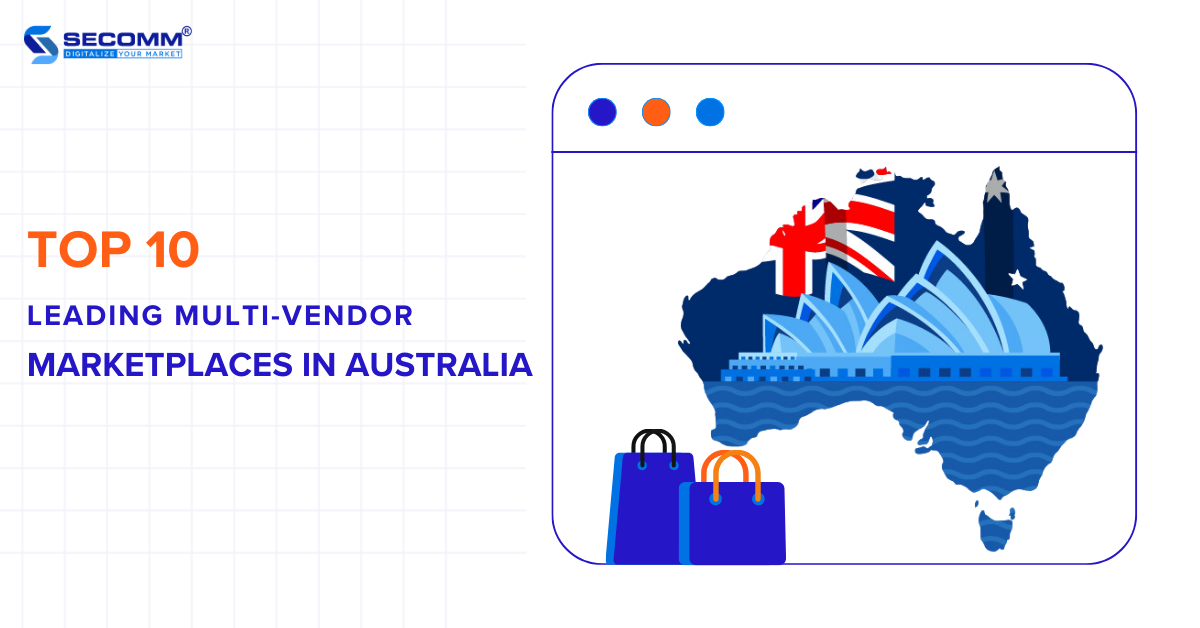
The eCommerce industry in Australia has experienced continual growth in recent years. Consumers are increasingly inclined to prioritize online shopping platforms for their diverse product offerings, convenience, and cost-effectiveness.
Here are 10 widely popular multi-vendor marketplaces that serve as favored shopping destinations for Australian consumers.
Learn more: Building your first multi-vendor marketplace with Marketplacer
In late 2017, Amazon officially launched its operations in Australia, marking the establishment of Amazon Australia. Much like in many other countries, Amazon Australia provides a diverse array of products, spanning fashion, electronics, home goods, books, toys, and electronic appliances sourced from various sellers.
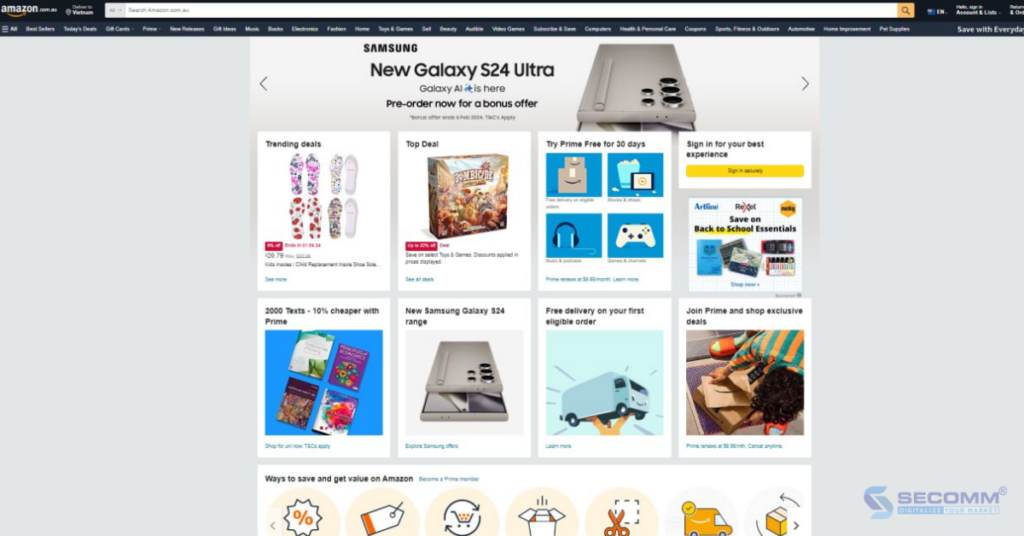
Beyond product sales, this retail behemoth also offers services such as Amazon Prime and Amazon Fresh, featuring expedited delivery policies and exclusive perks for members. Over the years, Amazon has solidified its position in the Australian eCommerce market, delivering a plethora of choices and a comprehensive online shopping experience for customers in the country.
Unlike Amazon, the retail giant eBay has been present in the Australian market since the early years of eBay’s global expansion. eBay has created an online marketplace that allows both individual sellers and businesses to sell their products. On this eCommerce platform, customers can find everything from fashion, electronics, and home goods to toys, decorations, and much more.
Currently, eBay is also a dominant player in the eCommerce market in the Australia and New Zealand region, alongside Amazon. This is due to offering customers an optimal shopping experience with various promotions and attractive deals throughout the year.
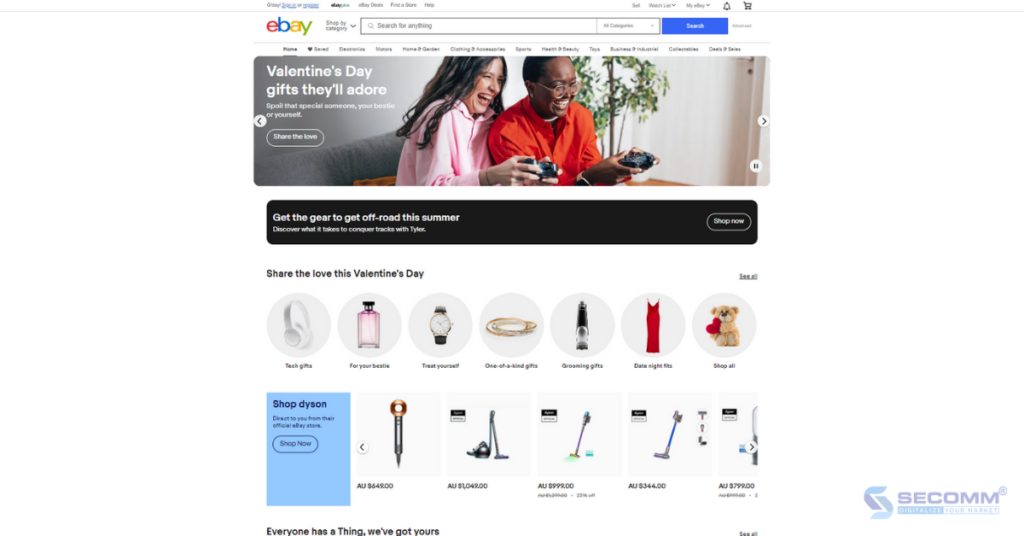
The Kmart multi-vendor marketplace started its operations in Australia in 1960 and has since evolved into one of the country’s most popular retail chains. The Kmart company is a part of the Wesfarmers group. The products offered by this Australian online marketplace are diverse, including electronics, household goods, furniture, cosmetics, and fashion.
Kmart is renowned for its cost-effective pricing strategy, making its products and services accessible and convenient for a diverse customer base. Alongside its website, Kmart provides a well-designed mobile app with features that facilitate convenient shopping for customers wherever and whenever they choose.
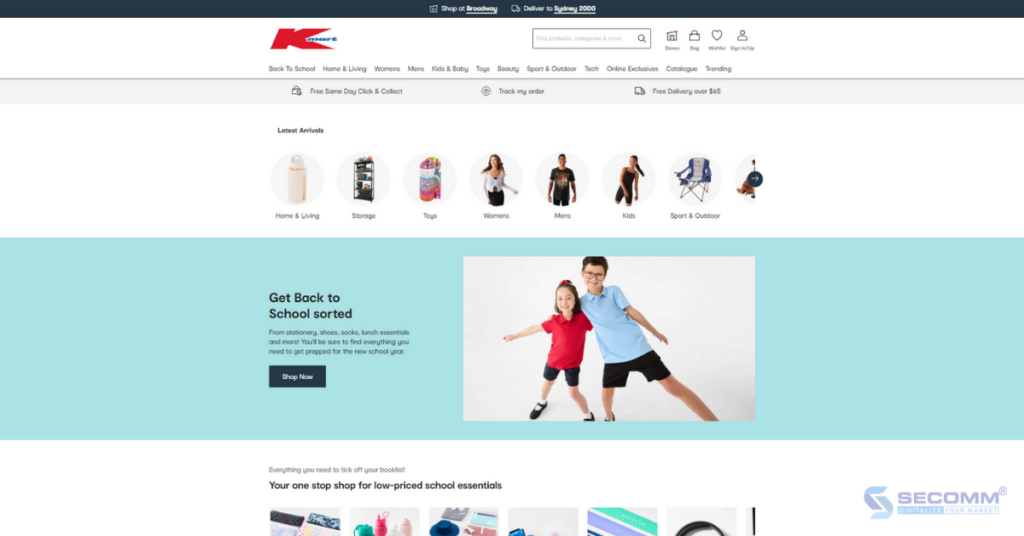
Myer has a long history, established in 1900 by Sidney Myer in Melbourne, Australia. Since then, Myer has grown into one of the major names in the retail industry in Australia. The Myer multi-vendor marketplace is built with modern technologies that make it easy to expand according to business needs. Additionally, advanced features can be developed and customized effectively to provide an exciting and optimal shopping experience for customers.
In addition to an extensive product portfolio, Myer has introduced a loyalty program called Myer One, allowing customers to collect points through shopping and redeem them for equivalent value rewards. This not only helps retain existing customers but also attracts more potential customers, making Myer one of the leading online marketplaces in the land Down Under.
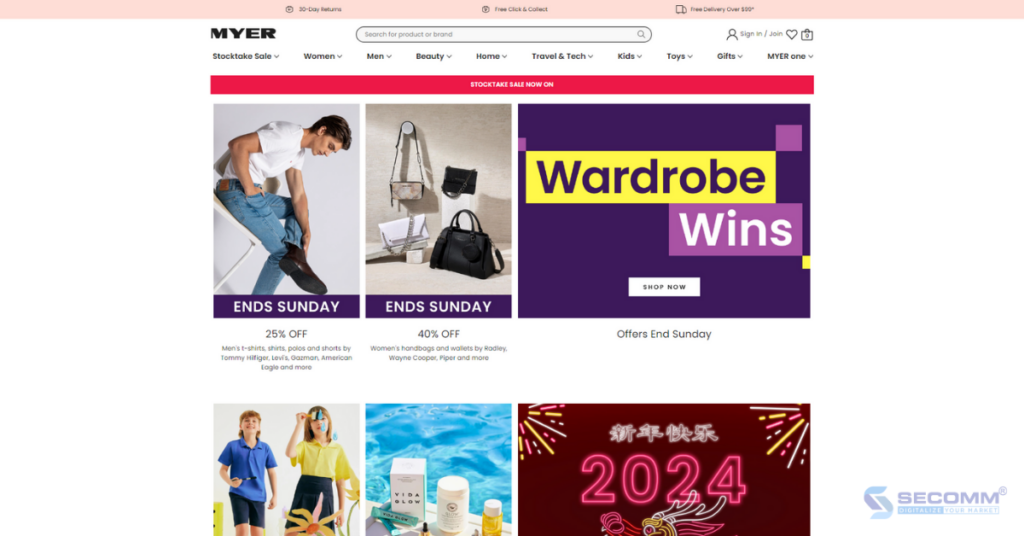
Big W is a part of the prominent retail group Wesfarmers, established in 1964. Over the years, Big W has evolved into one of Australia’s major and well-loved retail chains. In addition to showcasing products from renowned brands, Big W also offers a diverse range of in-house branded items, elevating its competitive edge and delivering significant value to customers.
Beyond its traditional brick-and-mortar stores scattered across Australia, Big W’s online marketplace features a user-friendly website and a mobile app for seamless online shopping at any time and from any location. Big W consistently rolls out enticing promotions and appealing deals, leveraging email marketing to engage with customers, ultimately driving up conversion rates and overall sales.
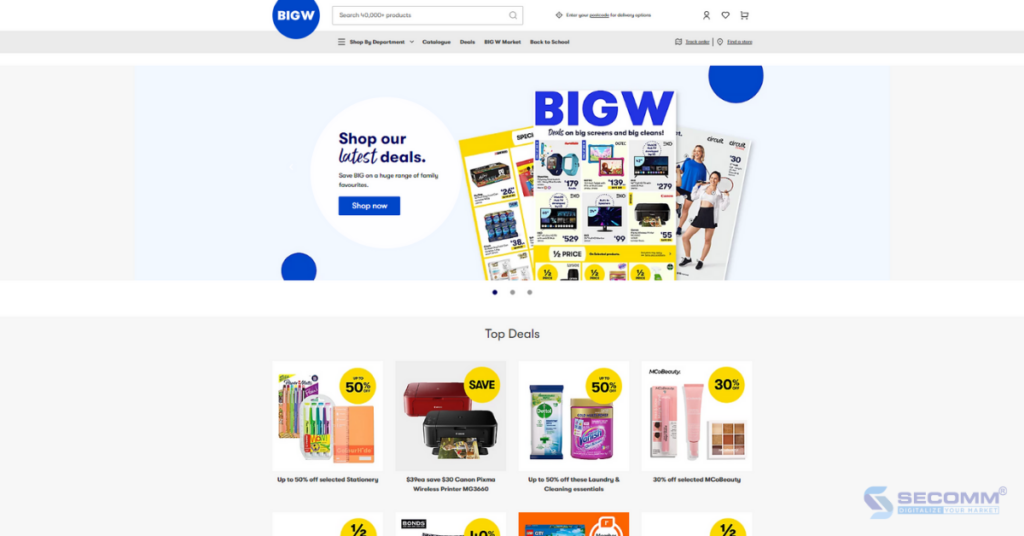
Target is known as the retail giant in the United States, specializing in providing products across various sectors. In the Australian market, Target is also popular and serves as a shopping destination for items such as fashion, furniture, gifts, and more.
Through monthly promotional programs and offers, Target has successfully attracted numerous new customers while maintaining relationships with its existing customer base.
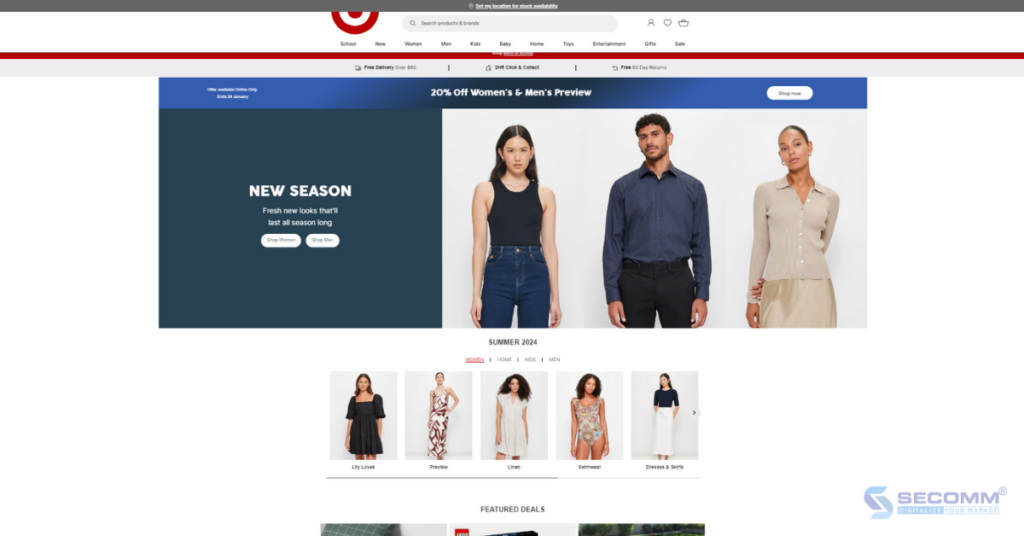
Catch, formerly known as Catch of the Day, is an Australian multi-vendor marketplace well-known for providing substantial deals and discounts across a diverse range of product categories. The online marketplace has introduced a loyalty program named Catch Club, offering members a points-based shopping system for exclusive rewards and special items.
In addition, Catch prioritizes customer service, offering various support channels such as chat, hotline, and email to ensure customers can easily access and seek prompt assistance.
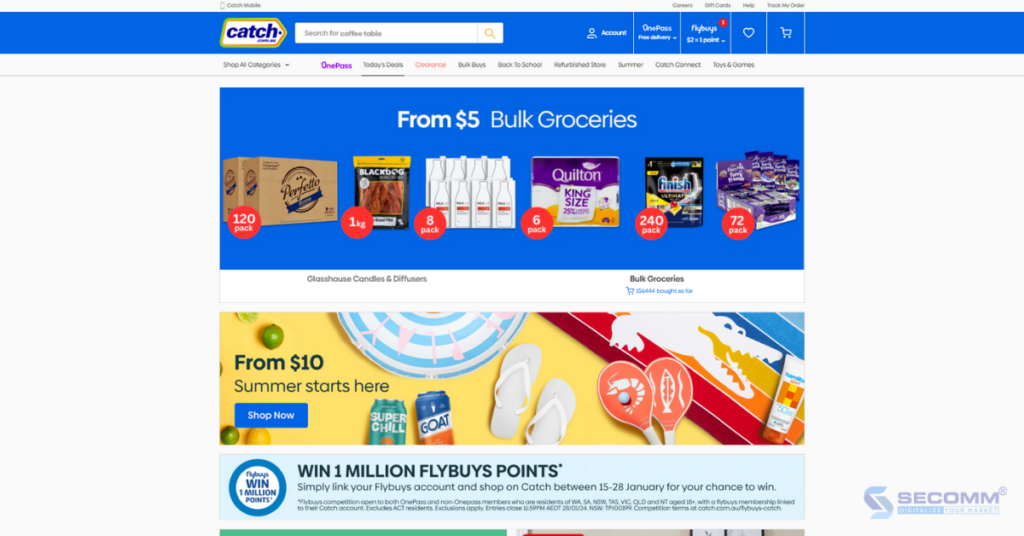
Kogan, headquartered in Australia, is well-known for delivering products and services at competitive prices. Established by Ruslan Kogan in 2006 in Melbourne, Australia, this multi-vendor marketplace initially focused on selling consumer electronics on its website, subsequently diversifying into multiple categories.
Through sensible policies, Kogan has established a fair online marketplace, enabling both businesses and individual sellers to engage in selling, offering buyers an extensive array of options.
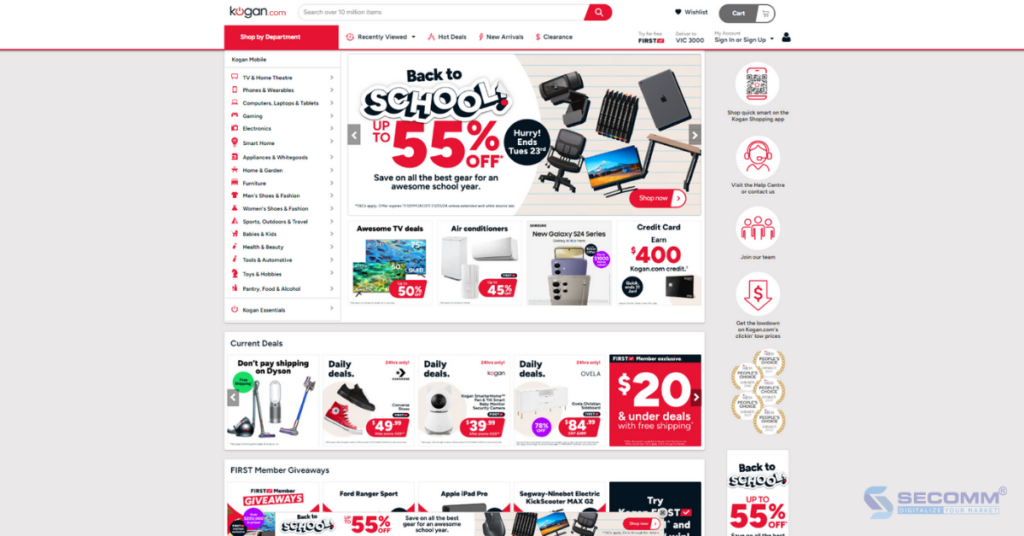
The multi-vendor marketplace MyDeal was established in 2011 in Melbourne, Australia. MyDeal originated as a website specializing in providing discount codes and shopping coupons.
MyDeal offers a diverse range of products, including fashion, household items, electronics, toys, furniture, and many other categories. They continually expand their product offerings to meet consumer needs.
MyDeal regularly creates flash sales, special discounts, and promotional programs to attract customers. With its diversity and attractive discounts, MyDeal has drawn in many consumers in Australia, becoming one of the most popular online marketplaces in the country.
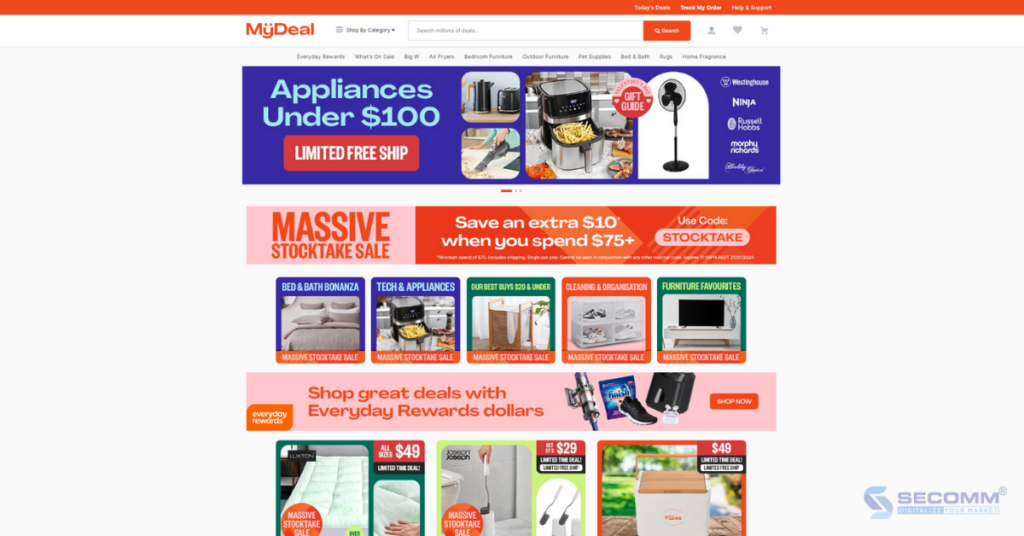
Formerly known as an Australian eCommerce website specializing in consumer electronics, Laybyland has transitioned its business model to become a multi-vendor marketplace. This shift allows numerous individual sellers and businesses to participate in selling their products on the platform, providing buyers with affordable pricing and diverse choices.
Laybyland and SECOMM have been partners for over 10 years, collaborating on various successful eCommerce projects, including the recent Laybyland multi-vendor marketplace. The project primarily utilizes two platforms, Marketplacer and Magento 2, to enhance operational efficiency and optimize the customer user experience.
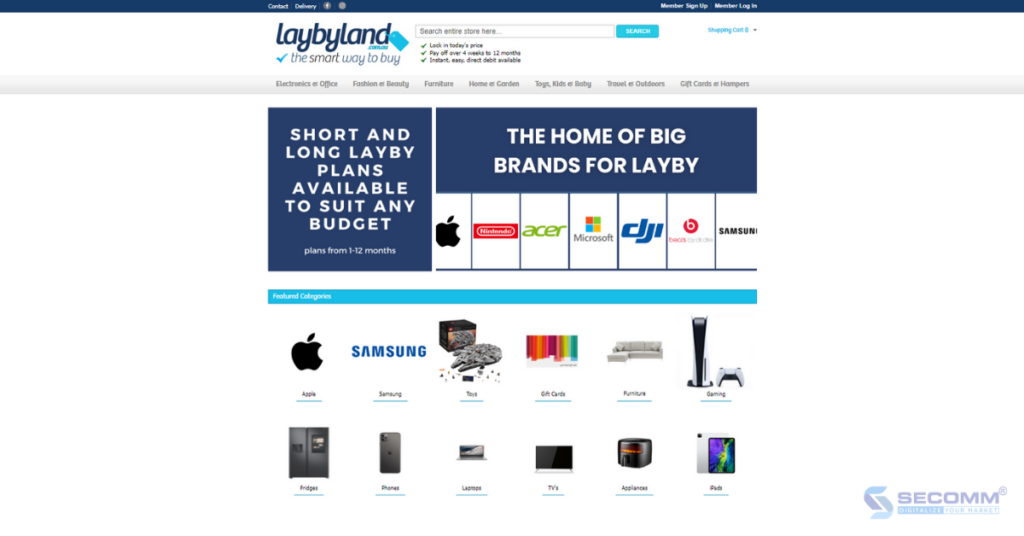
Learn more: The project of Laybyland
Above are the 10 most popular multi-vendor marketplaces in Australia, serving as the ideal online shopping destinations for local consumers.
The eCommerce industry in Australia has witnessed significant growth, with not just the mentioned 10 brands but also numerous other Australian businesses successfully implementing efficient platforms, attracting a wide customer base, and experiencing continuous growth.
If your business is still contemplating whether to establish a multi-vendor marketplace in Australia and how to go about it, feel free to contact or call our hotline at (+84)28 7108 9908 right now!
 2
2
 4,986
4,986
 0
0
 1
1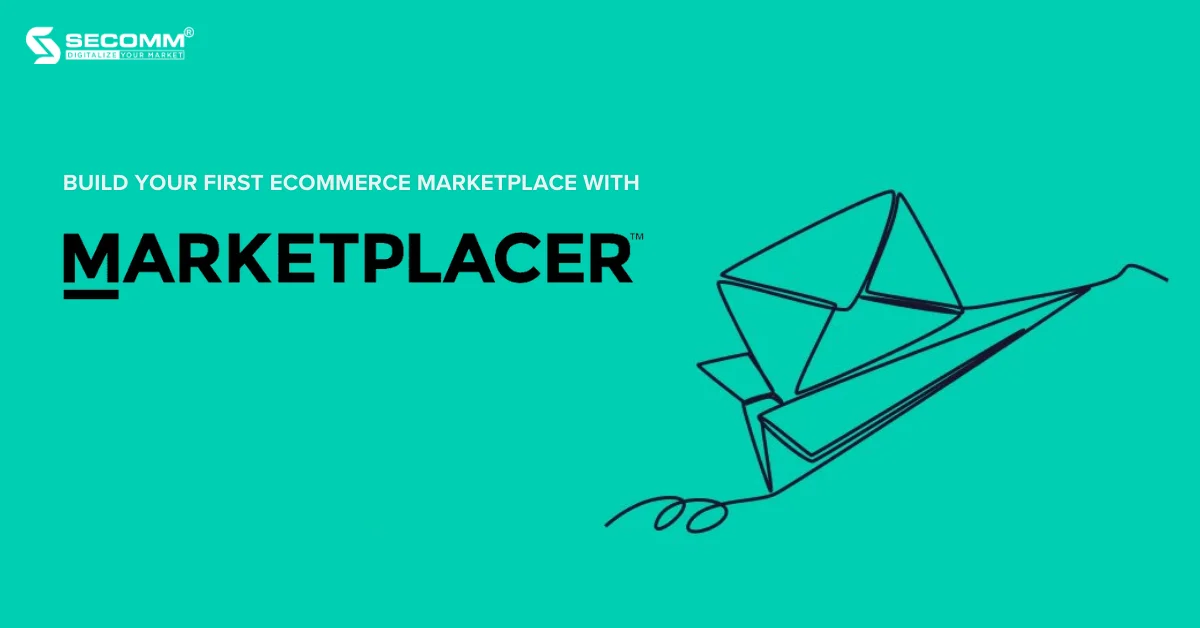
As reported by Digital Commerce 360, global consumers have collectively expended more than $3.25 trillion on famous eCommerce marketplaces such as Amazon, Ebay, and Alibaba. This indicates the increasing significance of online marketplaces in customer shopping experiences.
Therefore, many businesses have promptly devised strategies to enter the race for market share in eCommerce landscape. To achieve this goal, businesses must first develop their own marketplaces. The initial but crucial step in this process is selecting the ideal platform.
The following article focuses on introducing this platform as a recommendation for large businesses among countless optimal choices out there.
Marketplacer is a Software as a Service (SaaS) platform hosted on AWS, providing businesses with essential tools and features for building professional and highly adaptable eCommerce marketplaces capable of rapid scalability and swift page loading.
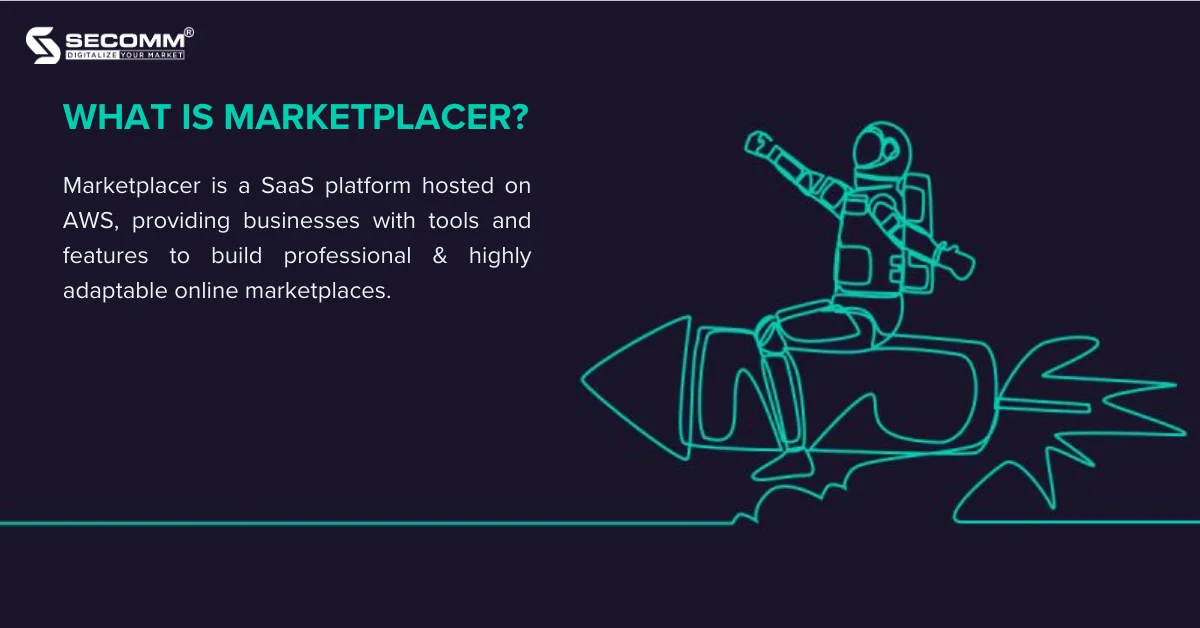
This platform streamlines the management and administration of eCommerce marketplaces. It simplifies tasks like order fulfillment, product category adjustments, third-party extension integration, cross-marketplace operational synchronization, and the implementation of strategies for revenue optimization.
To date, this platform has successfully established and expanded over 100 eCommerce marketplaces, forging connections with more than 13,000 sellers spanning the globe.
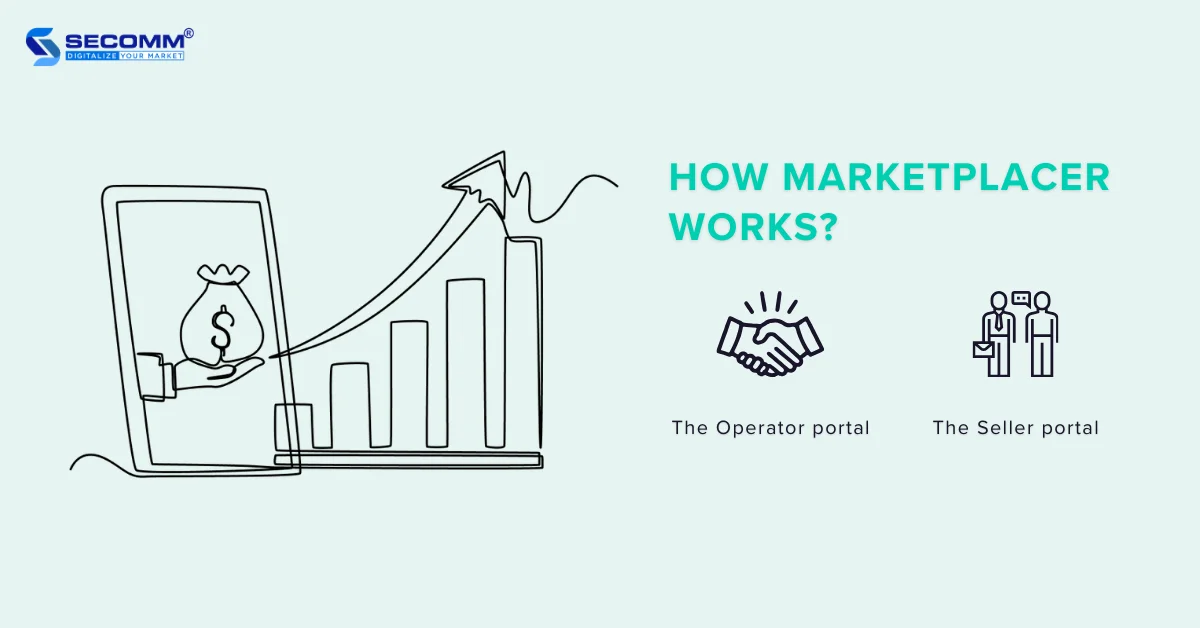
This platform offers businesses a Marketplace-wide API based on GraphQL API, allowing them to:
Furthermore, Marketplacer provides businesses with access to Webhooks, enabling them to receive notifications from the Marketplacer platform for any changes or updates during their operations.
This platform provides sellers on the marketplace with Seller API based on V2 (REST) API to
Similar to how businesses operate their business on the marketplace, sellers also have access to webhooks for receiving notifications regarding changes throughout their selling journey.
This platform offers two implementation models, allowing businesses to tailor the development of their online marketplace to align with their specific goals.
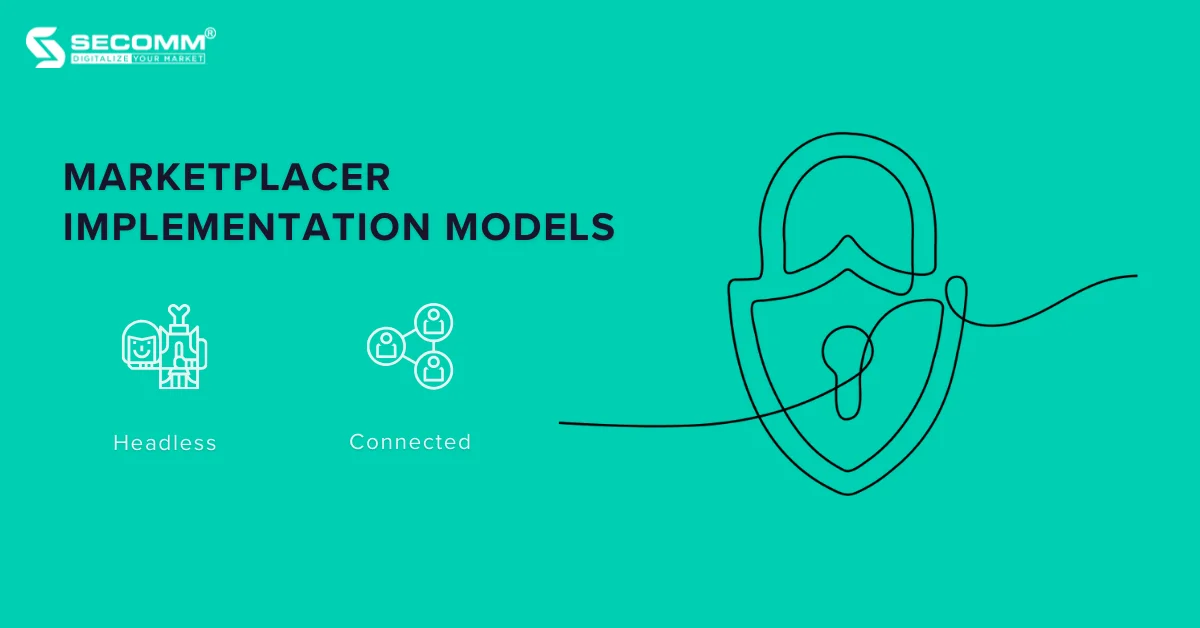
The Headless model empowers businesses to utilize their tailor-made frontend, commonly known as the “head,” which represents the user interface. This frontend is integrated with Marketplacer’s fundamental backend through APIs to execute the marketplace.
Therefore, opting for the Headless model is ideal for businesses seeking extensive control over the user experience while leveraging Marketplacer’s core technology to foster eCommerce growth.
In the Connected model, businesses can efficiently integrate a pre-built eCommerce system into Marketplacer’s backend, avoiding the need for an extensive time and financial resources to build from scratch. This integration allows businesses to maintain the full functionality of the pre-existing system while benefiting from this platform’s advanced infrastructure for seamless marketplace deployment.
It’s worth noting that Marketplacer currently offers pre-built connectors exclusively for three prominent platforms: Adobe Commerce, Salesforce Commerce Cloud, and commercetools. As a result, the Connected model is best suited for businesses utilizing one of these three platforms to facilitate their eCommerce.
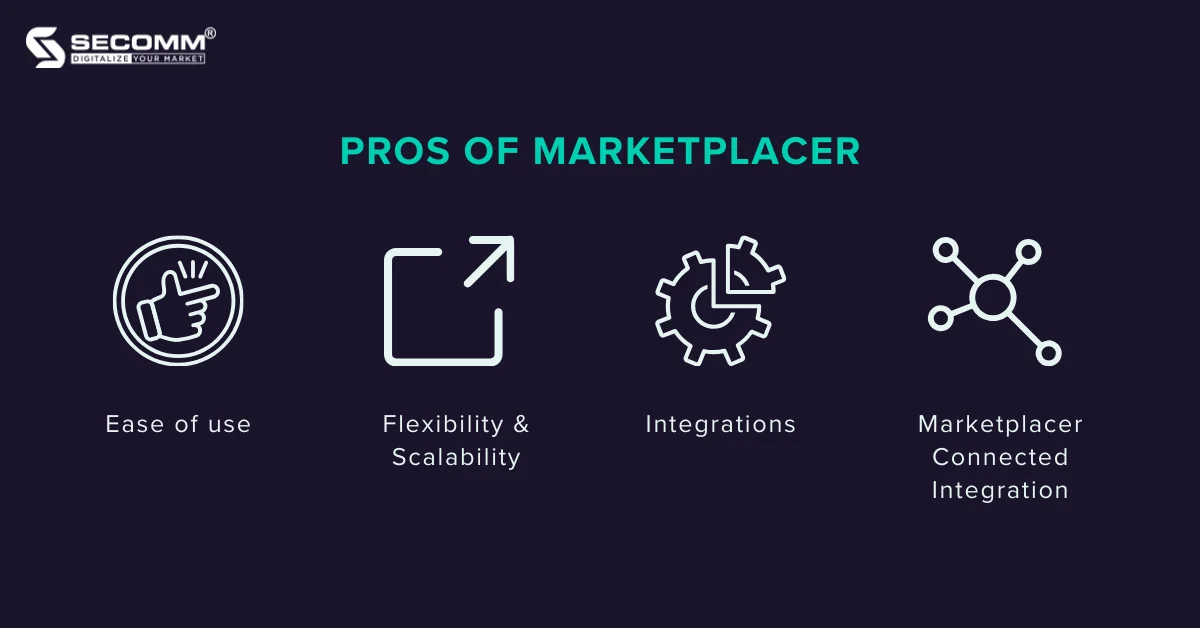
This platform offers a user-friendly interface and intuitive tools, making it simple for businesses to build and manage their online marketplace.
This platform is tailored to suit online marketplaces of diverse sizes. The platform boasts excellent scalability and remarkable flexibility, empowering businesses to manage an ever-increasing volume of sellers, customers, and listing products. This facilitates seamless expansion of operations as needed.
Businesses can easily discover well-known applications and extensions within Marketplacer’s growing collection of available integrations. Some noteworthy integrations include popular social media platforms like Facebook, Twitter, and LinkedIn, as well as payment gateways such as PayPal, Zooz, Yotpo, and advertising management tools like Fuze, Firstpage, and Citrus Ad.
Marketplacer’s success is attributed to its ‘Connected’ technology, enabling businesses to deploy their marketplaces with two versatile options: crafting a tailored frontend or integrating seamlessly with existing systems.
Also, businesses can effortlessly blend third-party products into their current inventory, broadening their product range and portfolio with minimal investment and mitigating product lifecycle management tasks. This model is known as the Hybrid Marketplace and has been successfully adopted by enterprises like Amazon, Walmart, and others.
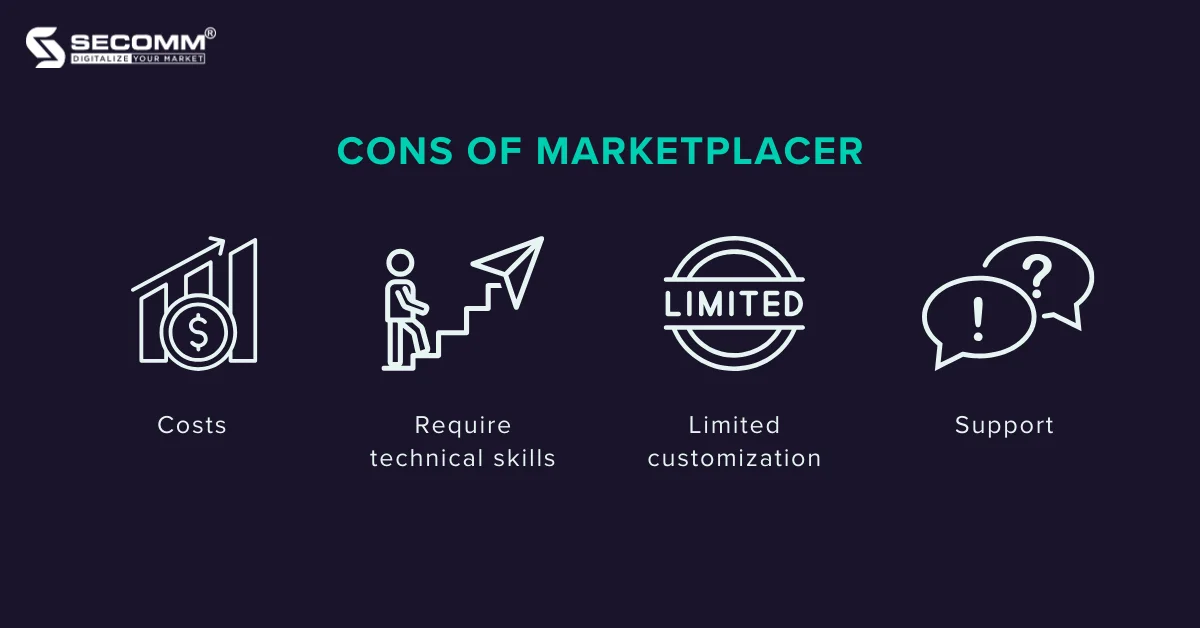
The license fee isn’t publicly available and businesses are required to reach out to the Marketplacer team for a personalized consultation and cost estimates. Furthermore, the platform doesn’t offer a trial version, which may pose challenges for businesses when planning their implementation budget.
While this platform offers a user-friendly interface, it may pose challenges for users who are not familiar with building and operating an eCommerce marketplace. Therefore, the implementation process will require businesses to have technical expertise, or they can seek specialized assistance to efficiently build and optimize the platform.
Despite its flexibility and high degree of customization, Marketplacer’s ability to meet the highly complex deployment needs of large-scale eCommerce systems may pose challenges.
This platform provides 24/7 support services and offers learning resources, but there is room for improvement in the quality and responsiveness of their support. Plus, as an Australian-based company primarily serving the Australian market, some of their terminology might be less clear to international customers.
To successfully build and operate a thriving eCommerce marketplace, the first thing businesses need to do is choose a platform. This platform is one of the standout platforms that businesses should consider.
Feel free to contact or call SECOMM’s hotline at (028) 7108 9908 for free consultations.
 2
2
 15,058
15,058
 0
0
 1
1Subscribe to get the latest eBook!
Hotline